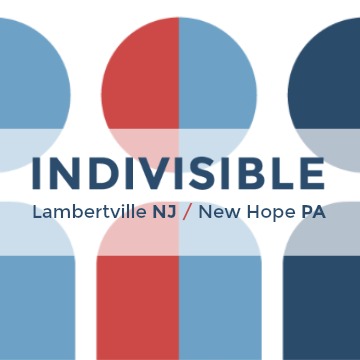Contributed by Elaine Clisham
So, the citizenship question will not appear on the 2020 census form. That’s good news! (But don’t sleep on this — there is already a push to get it included on the 2030 form!) Amid all the flurry over the question in the past few weeks, it was easy to miss some positive census developments here in New Jersey.
The 2020 census presents unique challenges. It will be the first census to be conducted primarily online, requiring a host of new technologies to be developed and tested. There were originally supposed to be three end-to-end field tests, but budget restrictions forced that number to be reduced to one, meaning the system will not be field-tested again after any identified bugs are fixed. The threat of the citizenship question being added has eroded trust in the census and threatens a robust response, particularly among groups hardest to count. (Hard-to-count communities include communities with a traditionally lower-than target response rate, which in New Jersey is 73 percent; minority communities and communities whose first language is not English; and children under 5 years old. This year, because the census will be conducted online, another hard-to-count category has been added — older residents who are uncomfortable or unfamiliar with the technology they will be asked to use.) And, while there have been increases to the federal budget for the census, there is widespread fear that the budget for partnerships and outreach will not get sufficient funding. None of this bodes well for an accurate census.
The good news is, New Jersey is taking several steps to try to minimize the risk of an incomplete count.
First, last fall the state appointed a Complete Count Commission, chaired by Secretary of State Tahesha Way, and charged it with identifying steps New Jersey and local municipalities and community groups need to take in order to ensure that every resident is counted. (You can read more about the commission here; Legislative District 15 Assemblywoman Verlina Reynolds-Jackson, who represents Lambertville, is a member.)
In June, after a series of public hearings around the state, the commission released its report (available here as a PDF). The report noted the three key advisory committees set up within the commission, and including representatives of hard-to-count communities, that will focus on community advocacy, partnerships with private entities, and education and intergovernmental coordination. It highlighted more than 500 hard-to-count census tracts in all but three counties, where it urged that extra effort — formation of local partnerships and Complete Count Committees, augmented outreach, including in languages other than English — be focused in order to ensure an accurate count. And it detailed plans for establishing a multi-lingual branding and communications campaign to support census outreach efforts throughout the state. These are all critical steps. (A good summary of the commission’s report can be found here.)
Second, the June meeting of the New Jersey Council of Grantmakers was focused entirely on ways the philanthropic sector can support efforts to secure a complete count. The council is developing partnerships with, and training resources for, its members, and has an entire section on its website devoted to its census efforts. (A good writeup of the council’s meeting is here.) This philanthropic support will be key to successful partnerships and outreach in hard-to-count communities.
And third, while the budget that Gov. Murphy originally proposed had only $2 million allocated for census outreach, the final version, drafted by the Legislature and now signed by the governor, includes the full $9 million that advocacy groups had requested. So while federal outreach funds may be lacking, New Jersey has now made a pledge to fill the gap.
All of this means that census prospects in New Jersey look a little brighter than at the federal level. However, we need to take advantage of these resources and work proactively to help ensure a complete count.
Call to Action!
If you have connections in a hard-to-count community and you want to help, contact any of the members of the state Complete Count Commission about setting up a local Complete Count Committee in that community, and becoming a census outreach partner. Let’s make sure all of New Jersey counts!




